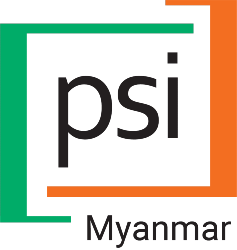JULY 2, 2024
By Dr. Zayar Kyaw, Head of Health Security & Innovation, PSI Myanmar
Under a three-year investment from the Indo-Pacific Center for Health Security under Australia’s Department for Foreign Affairs and Trade (DFAT), PSI is enhancing disease outbreak surveillance and public health emergency preparedness and response capacities in Myanmar, Cambodia, Laos, and Vietnam. When PSI conducted a review of existing disease surveillance systems in Myanmar, it identified several gaps: although the Ministry of Health had systems in place for HIV, tuberculosis, malaria and other communicable diseases, they were fragmented, with different reporting formats and reliance on paper-based reporting. In addition, private sector case surveillance data were not routinely captured, yet private clinics and pharmacies are the dominant health service delivery channel in the country. This hindered effective disease prevention and control efforts.
Building on our extensive private sector malaria surveillance work under the BMGF-funded GEMS project in the Greater Mekong Subregion, PSI implemented a case-based disease notification system using social media channels to overcome the limitations of paper-based and custom-built mobile reporting tools. These chatbots, accessible through popular social media platforms like Facebook Messenger and Viber, proved to be user-friendly and required minimal training, maintenance, and troubleshooting. The system was implemented in more than 550 clinics of the Sun Quality Health social franchise network as well as nearly 470 pharmacies. The captured information flows to a DHIS2 database used for real-time monitoring and analysis, enabling rapid detection of potential outbreaks. Local health authorities receive instant automated SMS notifications, enabling them to promptly perform case investigation and outbreak response.
In 2022, private clinics reported 1,440 malaria cases through the social media chatbots, while community mobilizers working with 475 private providers and community-based malaria volunteers reported more than 5,500 cases, leading to the detection of two local malaria outbreaks. Local health authorities were instantly notified, allowing them to take action to contain these surges in malaria transmission. During the same time, pharmacies referred 1,630 presumptive tuberculosis cases for confirmatory testing – a third of which were diagnosed as tuberculosis and enrolled into treatment programs.
